
awesome-weather-models
🌦️ A catalogue and categorization of AI-based weather forecasting models.
Stars: 99
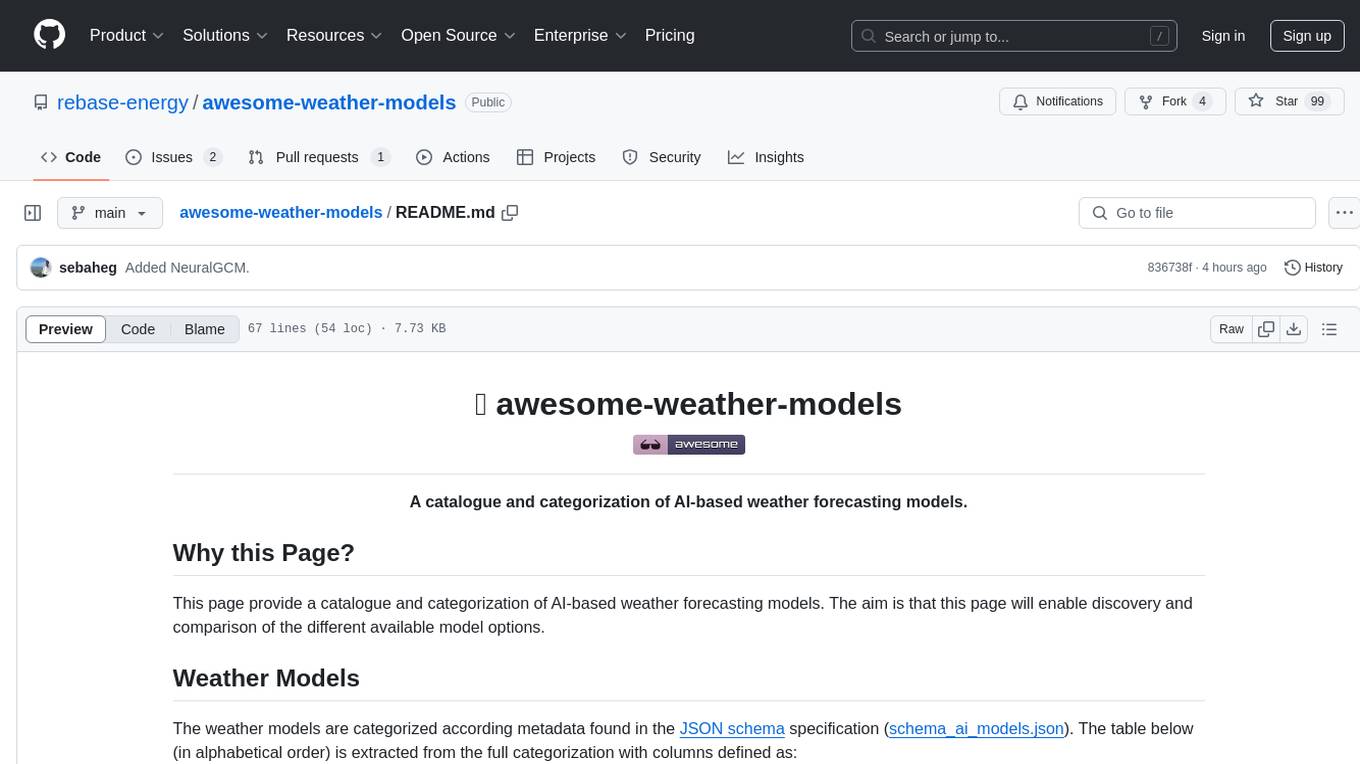
A catalogue and categorization of AI-based weather forecasting models. This page provides a catalogue and categorization of AI-based weather forecasting models to enable discovery and comparison of different available model options. The weather models are categorized based on metadata found in the JSON schema specification. The table includes information such as the name of the weather model, the organization that developed it, operational data availability, open-source status, and links for further details.
README:
A catalogue and categorization of AI-based weather forecasting models.
This page provide a catalogue and categorization of AI-based weather forecasting models. The aim is that this page will enable discovery and comparison of the different available model options.
The weather models are categorized according metadata found in the JSON schema specification (schema_ai_models.json). The table below (in alphabetical order) is extracted from the full categorization with columns defined as:
- Name: Name of the weather model.
- Organization: Organization that developed the weather model.
- Operational Data: If forecast data from the model is provided at an operational basis.
- Open Source: If the source code is provided as open source.
- Open Weights: If the model weights are provided as open weights.
Click the link of the model name to see the full model categorization.
| Name | Lead Organization | Operational Data | Open Source | Open Weights | Links |
|---|---|---|---|---|---|
AIFS |
ECMWF | ✅ CC BY 4.0 |
❌ | ❌ | [paper], [access] |
ARCHESWEATHER‑L |
INRIA | ❌ | ✅ MIT |
✅ MIT |
[code], [paper] |
ARCHESWEATHER‑M |
INRIA | ❌ | ✅ MIT |
✅ MIT |
[code], [paper] |
ARCHESWEATHER‑S |
INRIA | ❌ | ✅ MIT |
✅ MIT |
[code], [paper] |
Aurora |
Microsoft | ❌ | ✅ MIT |
✅ MIT |
[code], [paper], [docs], [pypi] |
ClimaX‑H |
Microsoft | ❌ | ✅ MIT |
❌ | [code], [paper], [docs] |
ClimaX‑L |
Microsoft | ❌ | ✅ MIT |
❌ | [code], [paper], [docs] |
FengWu |
OpenEarthLab | ❌ | ✅ MIT |
✅ None |
[code], [paper] |
FourCastNet |
Nvidia | ❌ | ✅ BSD 3-Clause |
✅ BSD 3-Clause |
[code], [paper] |
GenCast |
Google DeepMind | ❌ | ❌ | ❌ | [paper] |
GraphCast |
Google-DeepMind | ❌ | ✅ APACHE-2.0 |
✅ CC BY-NC-SA 4.0 |
[code], [paper], [blog] |
MET Norway |
MET Norway | ❌ | ❌ | ❌ | [paper] |
NeuralGCM‑ENS |
Google Research | ❌ | ✅ Apache-2.0 |
✅ CC BY-NC-SA 4.0 |
[code], [paper] |
NeuralGCM‑H |
Google Research | ❌ | ✅ Apache-2.0 |
✅ CC BY-NC-SA 4.0 |
[code], [paper] |
NeuralGCM‑L |
Google Research | ❌ | ✅ Apache-2.0 |
✅ CC BY-NC-SA 4.0 |
[code], [paper] |
NeuralGCM‑M |
Google Research | ❌ | ✅ Apache-2.0 |
✅ CC BY-NC-SA 4.0 |
[code], [paper] |
Pangu‑Weather |
Huawei | ❌ | ✅ CC BY-NC-SA 4.0 |
✅ CC BY-NC-SA 4.0 |
[code], [paper] |
Prithvi WxC |
IBM and NASA | ❌ | ✅ MIT |
✅ MIT |
[code], [paper], [weights] |
Contributions are much welcome! Make a PR or issue and we will incorporate it. Contributions could for example be:
- Add a model to the list
- Update categorization and links
- Feedback on categorization/structure to make it more useful
When making a PR, follow the these steps to make sure your contribution is consistent with this repo structure:
- All updates/changes should be done to the following files:
-
data_ai_models.jsonfor updates/changes to model categorization. -
schema_ai_models.jsonfor schema changes. -
README_no_table.mdfor changes to the README.
-
When updates/changes are completed run
python validate_convert_insert.py. Make sure all JSON validations checks pass. -
The files
ai_model.mdand ´README.md´ will be auto-generated from the script. -
Add all the changed and generated files and submit the PR.
For Tasks:
Click tags to check more tools for each tasksFor Jobs:
Alternative AI tools for awesome-weather-models
Similar Open Source Tools

awesome-weather-models
A catalogue and categorization of AI-based weather forecasting models. This page provides a catalogue and categorization of AI-based weather forecasting models to enable discovery and comparison of different available model options. The weather models are categorized based on metadata found in the JSON schema specification. The table includes information such as the name of the weather model, the organization that developed it, operational data availability, open-source status, and links for further details.
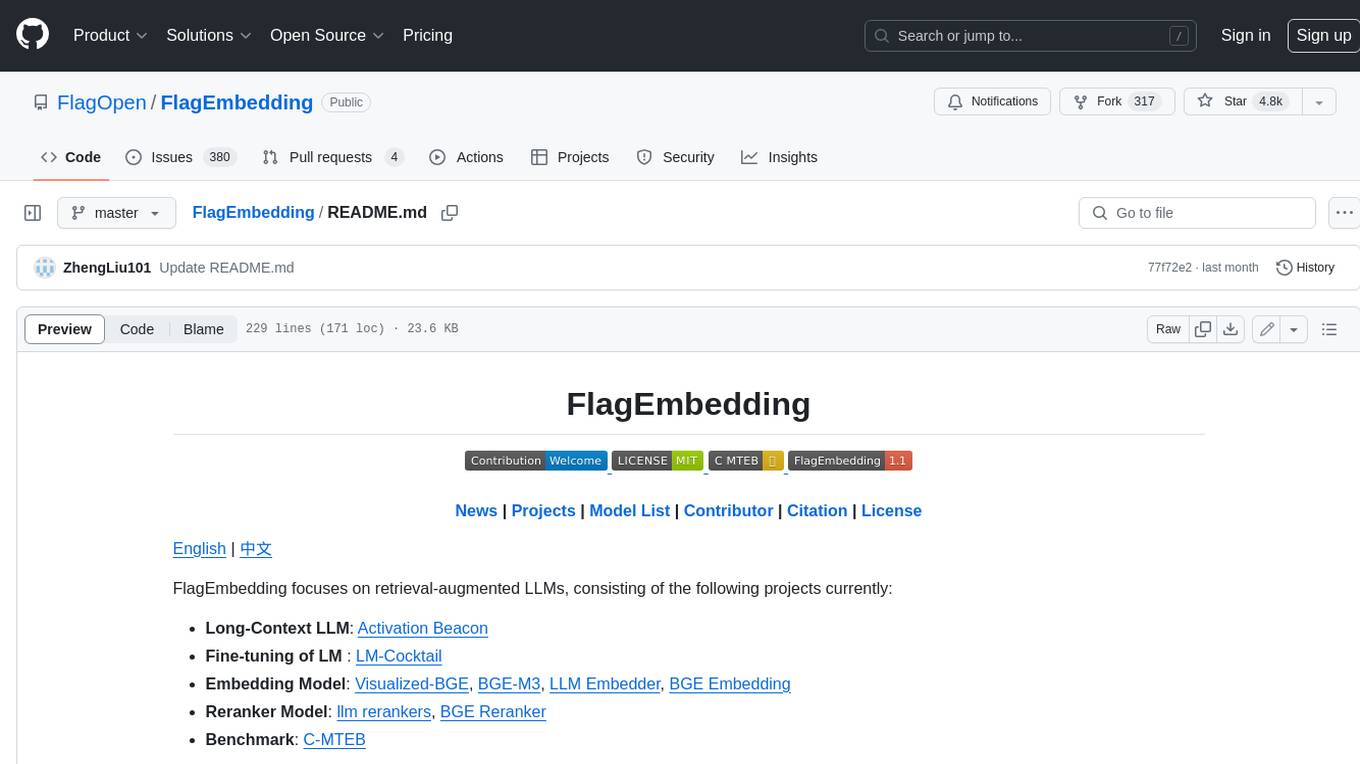
FlagEmbedding
FlagEmbedding focuses on retrieval-augmented LLMs, consisting of the following projects currently: * **Long-Context LLM** : Activation Beacon * **Fine-tuning of LM** : LM-Cocktail * **Embedding Model** : Visualized-BGE, BGE-M3, LLM Embedder, BGE Embedding * **Reranker Model** : llm rerankers, BGE Reranker * **Benchmark** : C-MTEB

floneum
Floneum is a graph editor that makes it easy to develop your own AI workflows. It uses large language models (LLMs) to run AI models locally, without any external dependencies or even a GPU. This makes it easy to use LLMs with your own data, without worrying about privacy. Floneum also has a plugin system that allows you to improve the performance of LLMs and make them work better for your specific use case. Plugins can be used in any language that supports web assembly, and they can control the output of LLMs with a process similar to JSONformer or guidance.
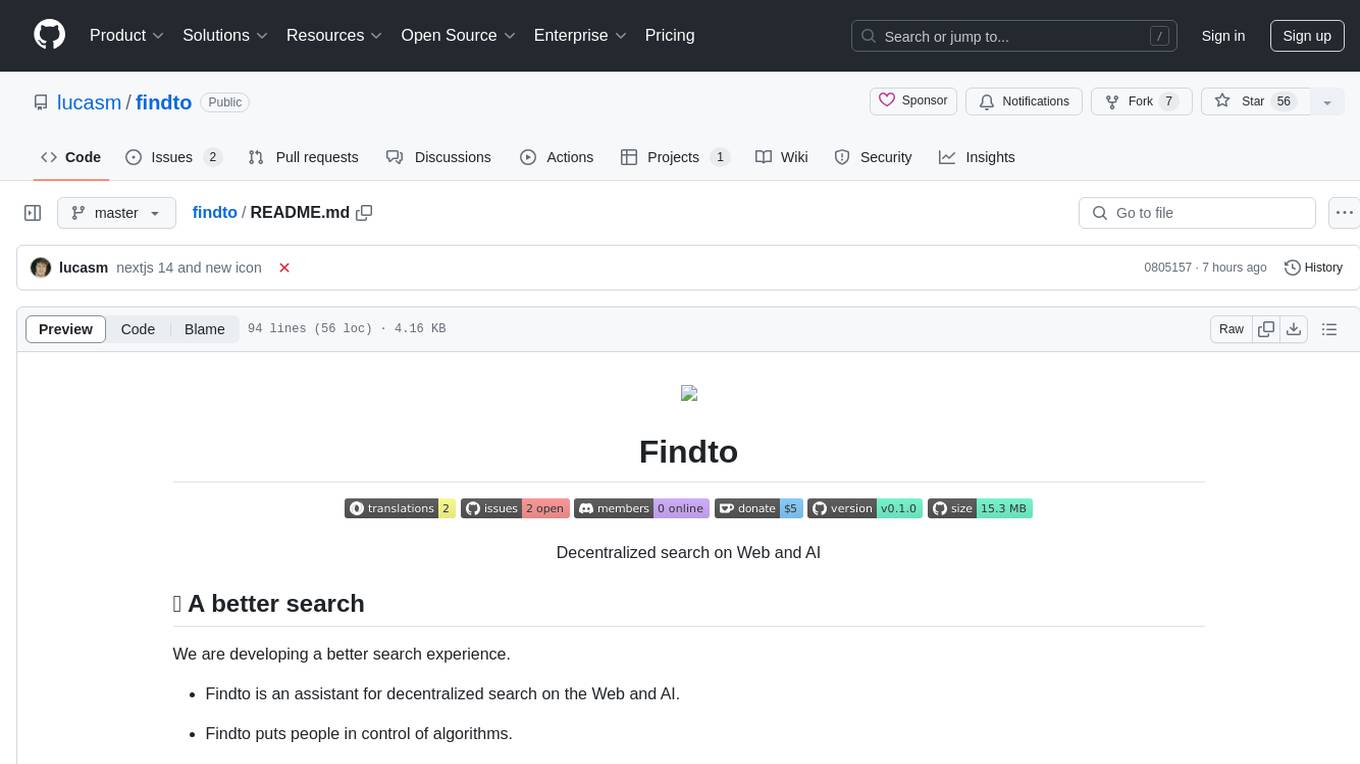
findto
Findto is a decentralized search tool for the Web and AI that puts people in control of algorithms. It aims to provide a better search experience by offering diverse sources, privacy and carbon level information, trends exploration, autosuggest, voice search, and more. Findto encourages a free search experience and promotes a healthier internet by empowering users with democratic choices.
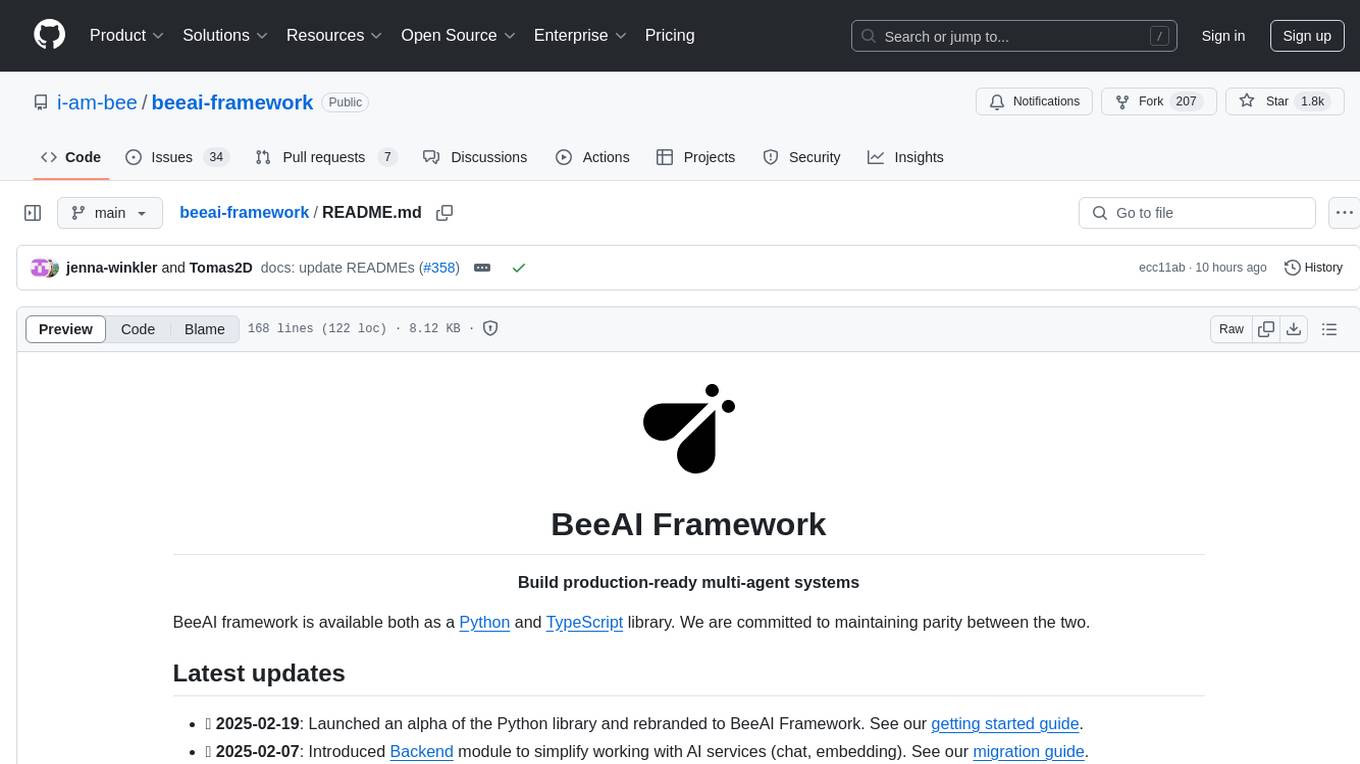
beeai-framework
BeeAI Framework is a versatile tool for building production-ready multi-agent systems. It offers flexibility in orchestrating agents, seamless integration with various models and tools, and production-grade controls for scaling. The framework supports Python and TypeScript libraries, enabling users to implement simple to complex multi-agent patterns, connect with AI services, and optimize token usage and resource management.
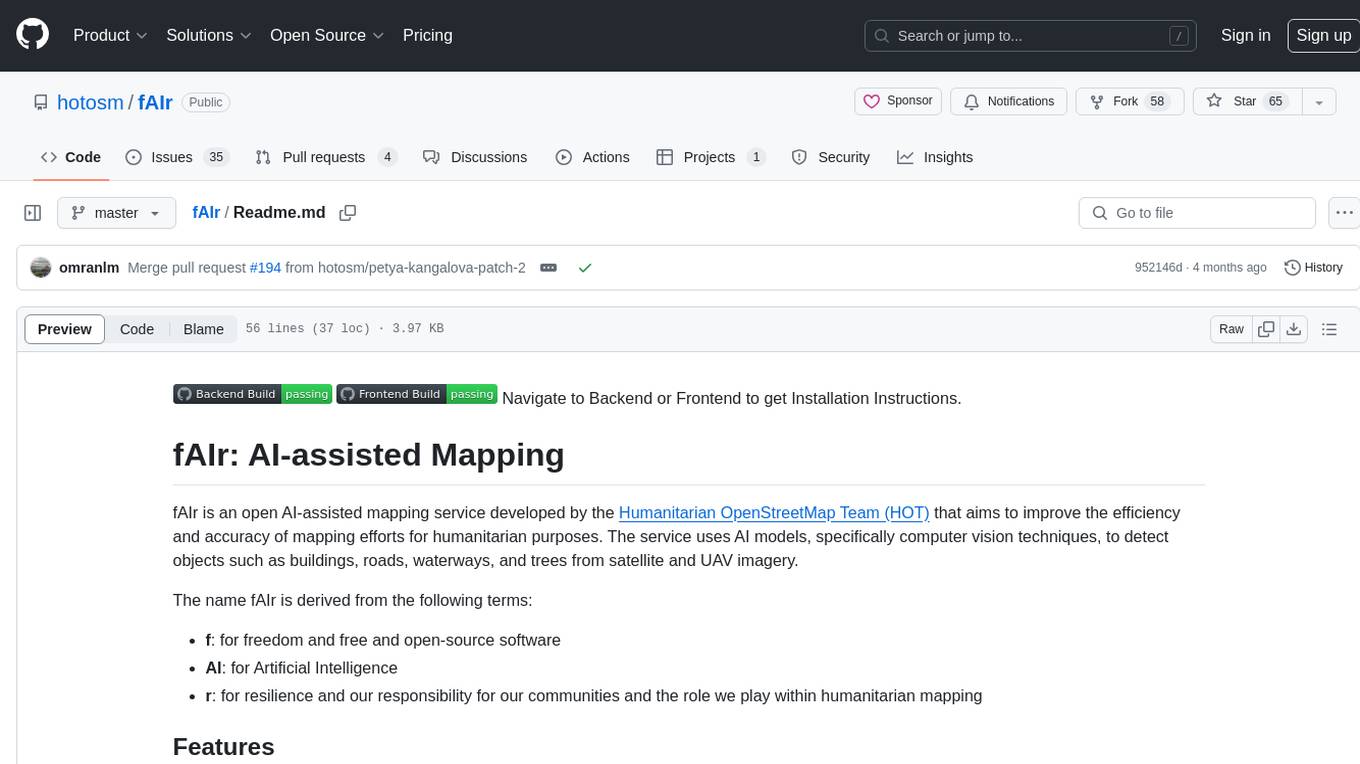
fAIr
fAIr is an open AI-assisted mapping service developed by the Humanitarian OpenStreetMap Team (HOT) to improve mapping efficiency and accuracy for humanitarian purposes. It uses AI models, specifically computer vision techniques, to detect objects like buildings, roads, waterways, and trees from satellite and UAV imagery. The service allows OSM community members to create and train their own AI models for mapping in their region of interest and ensures models are relevant to local communities. Constant feedback loop with local communities helps eliminate model biases and improve model accuracy.
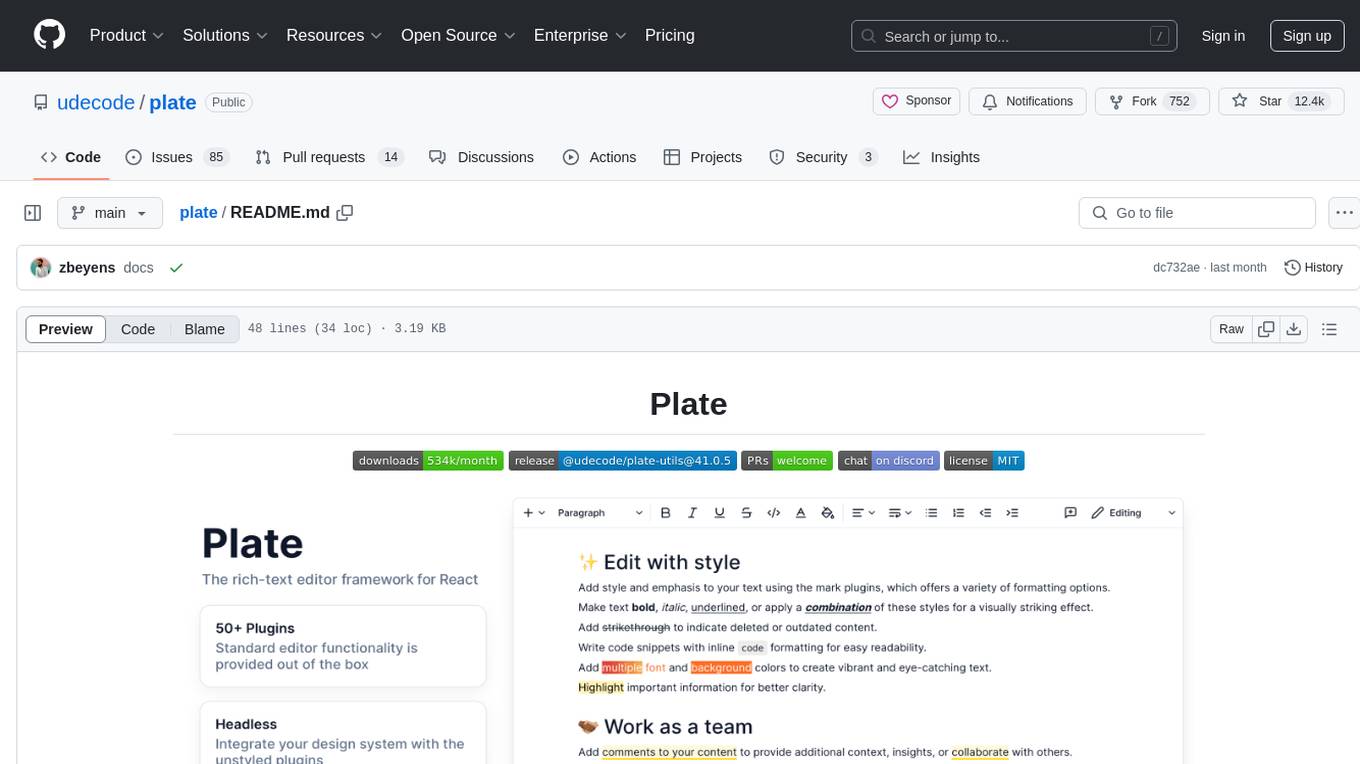
plate
Plate is a rich-text editor framework designed for simplicity and efficiency. It consists of core plugin system, various plugin packages, primitive hooks and components, and pre-built components. Plate offers templates for different use cases like Notion-like template, Plate playground template, and Plate minimal template. Users can refer to the documentation for more information on Plate. Contributors are welcome to join the project by giving stars, making pull requests, or sharing plugins.
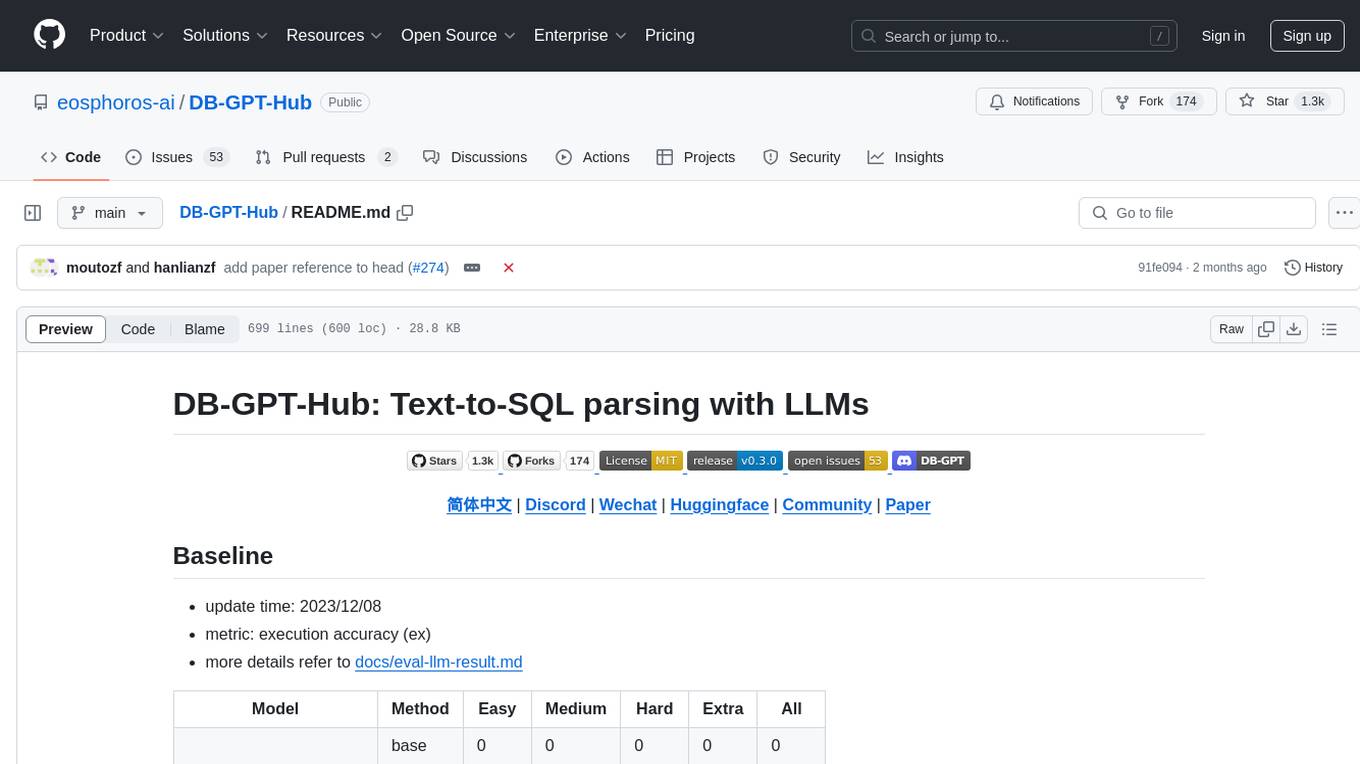
DB-GPT-Hub
DB-GPT-Hub is an experimental project leveraging Large Language Models (LLMs) for Text-to-SQL parsing. It includes stages like data collection, preprocessing, model selection, construction, and fine-tuning of model weights. The project aims to enhance Text-to-SQL capabilities, reduce model training costs, and enable developers to contribute to improving Text-to-SQL accuracy. The ultimate goal is to achieve automated question-answering based on databases, allowing users to execute complex database queries using natural language descriptions. The project has successfully integrated multiple large models and established a comprehensive workflow for data processing, SFT model training, prediction output, and evaluation.
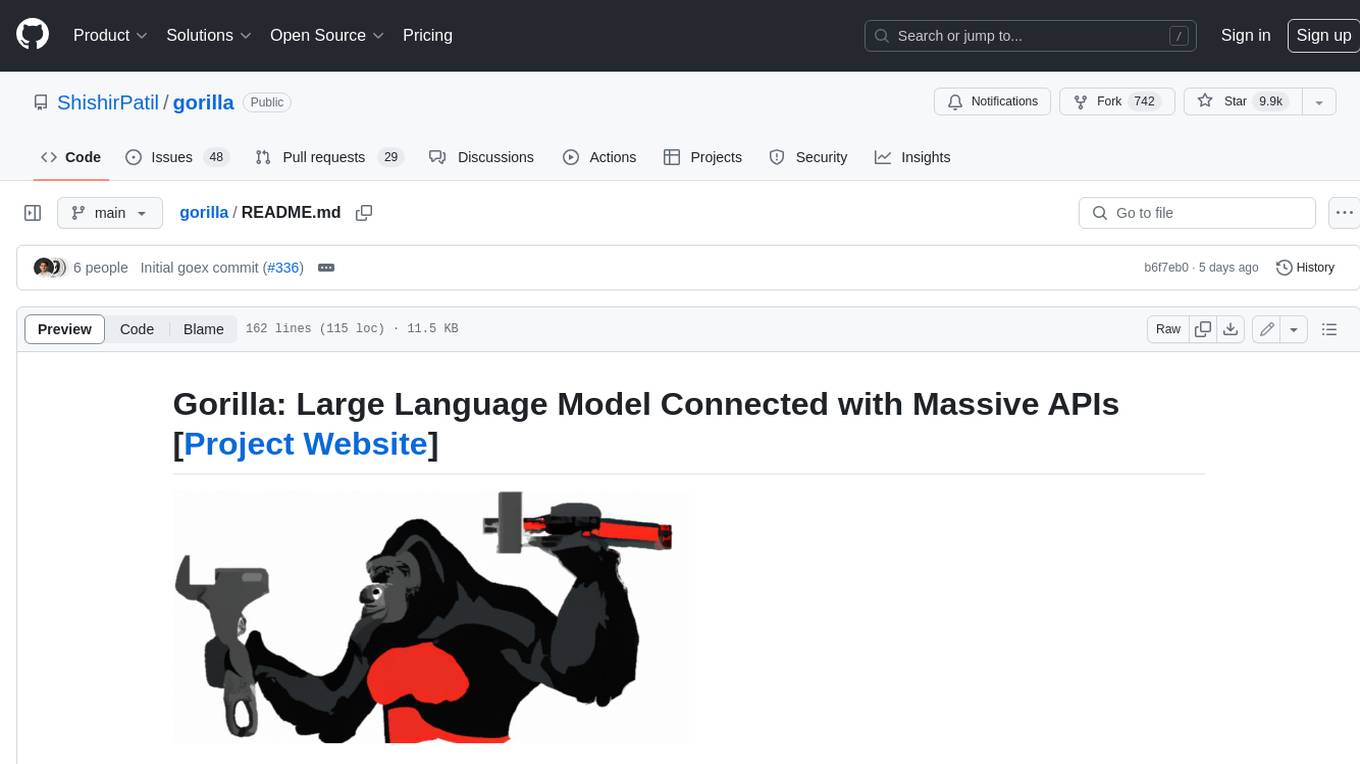
gorilla
Gorilla is a tool that enables LLMs to use tools by invoking APIs. Given a natural language query, Gorilla comes up with the semantically- and syntactically- correct API to invoke. With Gorilla, you can use LLMs to invoke 1,600+ (and growing) API calls accurately while reducing hallucination. Gorilla also releases APIBench, the largest collection of APIs, curated and easy to be trained on!
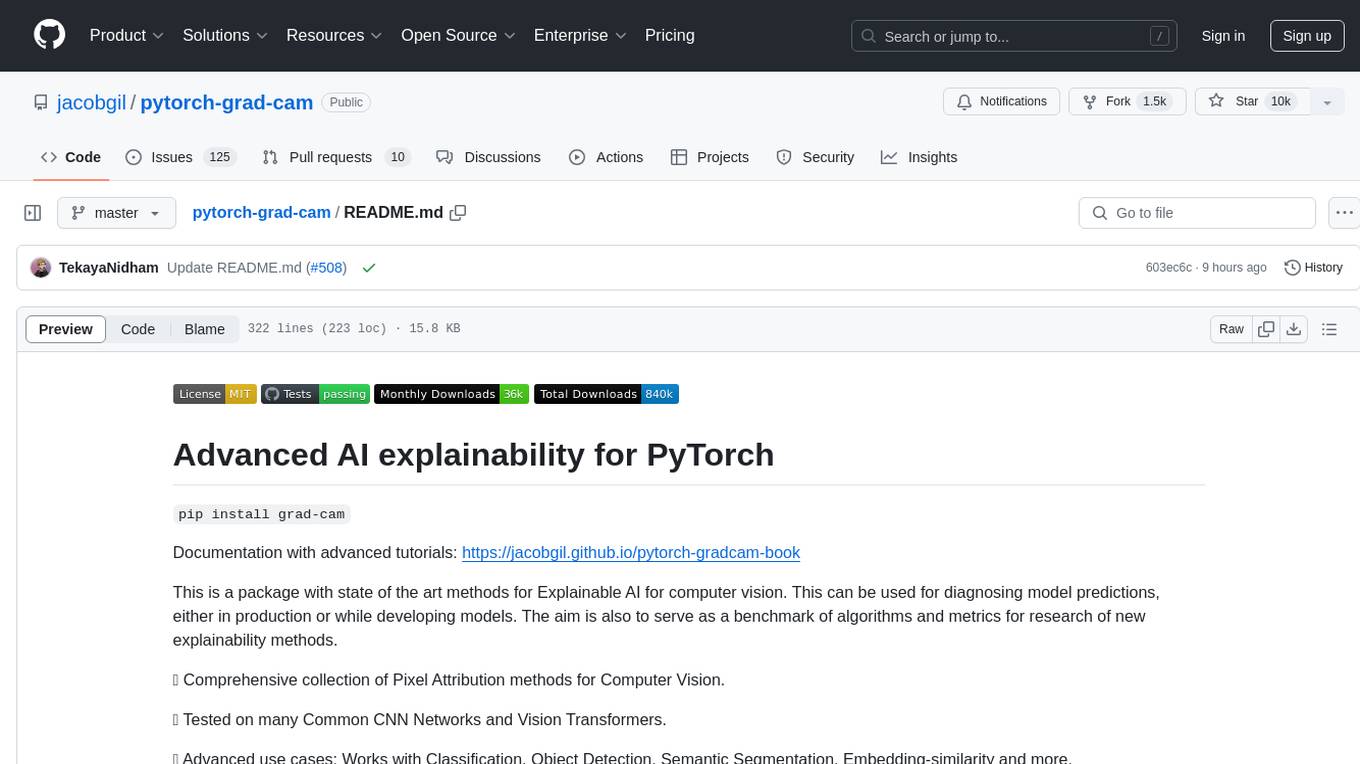
pytorch-grad-cam
This repository provides advanced AI explainability for PyTorch, offering state-of-the-art methods for Explainable AI in computer vision. It includes a comprehensive collection of Pixel Attribution methods for various tasks like Classification, Object Detection, Semantic Segmentation, and more. The package supports high performance with full batch image support and includes metrics for evaluating and tuning explanations. Users can visualize and interpret model predictions, making it suitable for both production and model development scenarios.
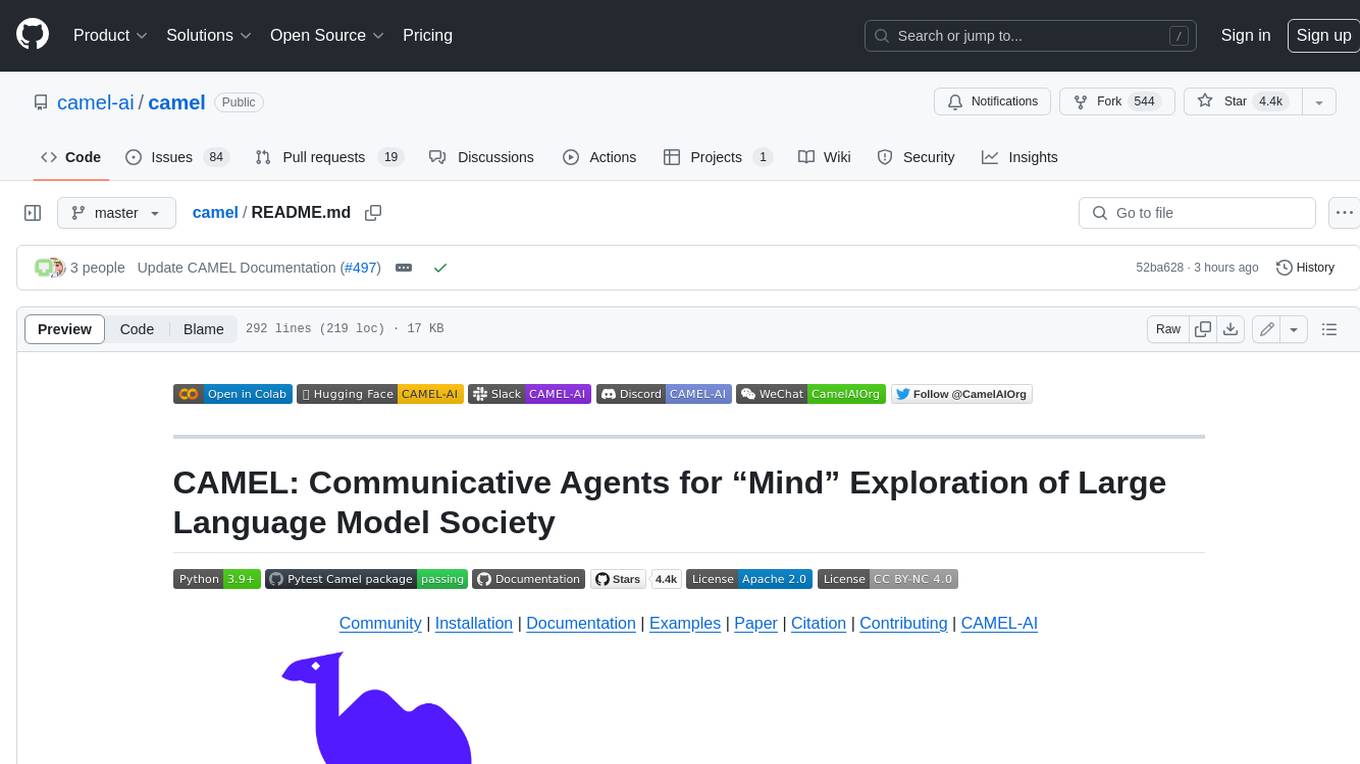
camel
CAMEL is an open-source library designed for the study of autonomous and communicative agents. We believe that studying these agents on a large scale offers valuable insights into their behaviors, capabilities, and potential risks. To facilitate research in this field, we implement and support various types of agents, tasks, prompts, models, and simulated environments.
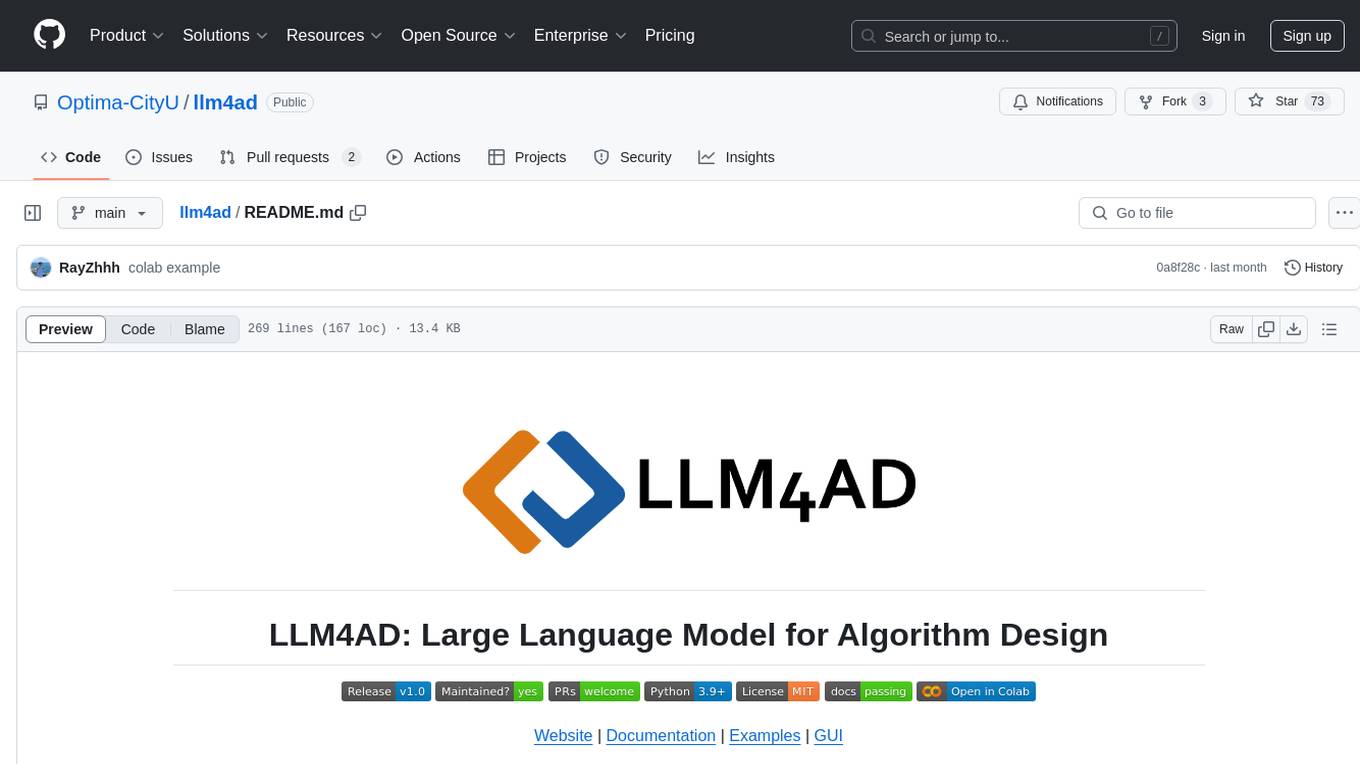
llm4ad
LLM4AD is an open-source Python-based platform leveraging Large Language Models (LLMs) for Automatic Algorithm Design (AD). It provides unified interfaces for methods, tasks, and LLMs, along with features like evaluation acceleration, secure evaluation, logs, GUI support, and more. The platform was originally developed for optimization tasks but is versatile enough to be used in other areas such as machine learning, science discovery, game theory, and engineering design. It offers various search methods and algorithm design tasks across different domains. LLM4AD supports remote LLM API, local HuggingFace LLM deployment, and custom LLM interfaces. The project is licensed under the MIT License and welcomes contributions, collaborations, and issue reports.
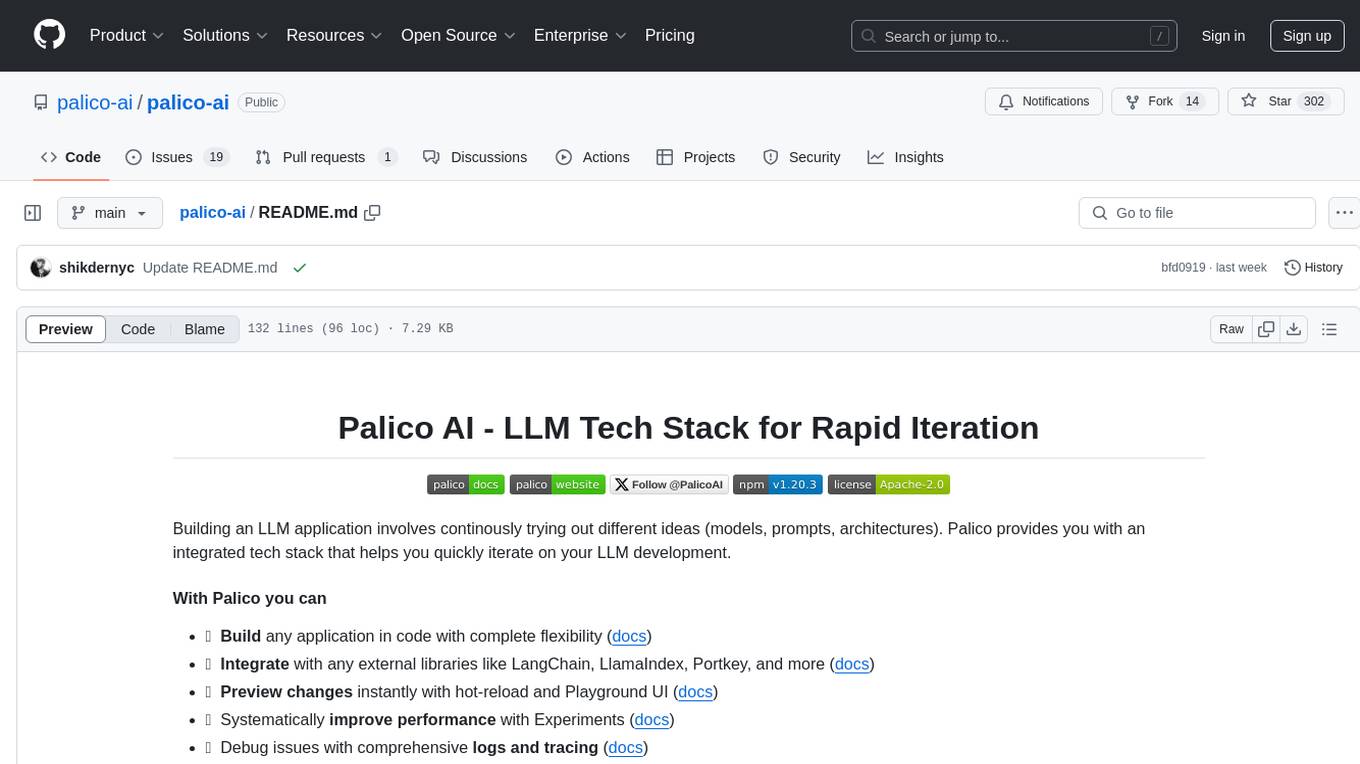
palico-ai
Palico AI is a tech stack designed for rapid iteration of LLM applications. It allows users to preview changes instantly, improve performance through experiments, debug issues with logs and tracing, deploy applications behind a REST API, and manage applications with a UI control panel. Users have complete flexibility in building their applications with Palico, integrating with various tools and libraries. The tool enables users to swap models, prompts, and logic easily using AppConfig. It also facilitates performance improvement through experiments and provides options for deploying applications to cloud providers or using managed hosting. Contributions to the project are welcomed, with easy ways to get involved by picking issues labeled as 'good first issue'.
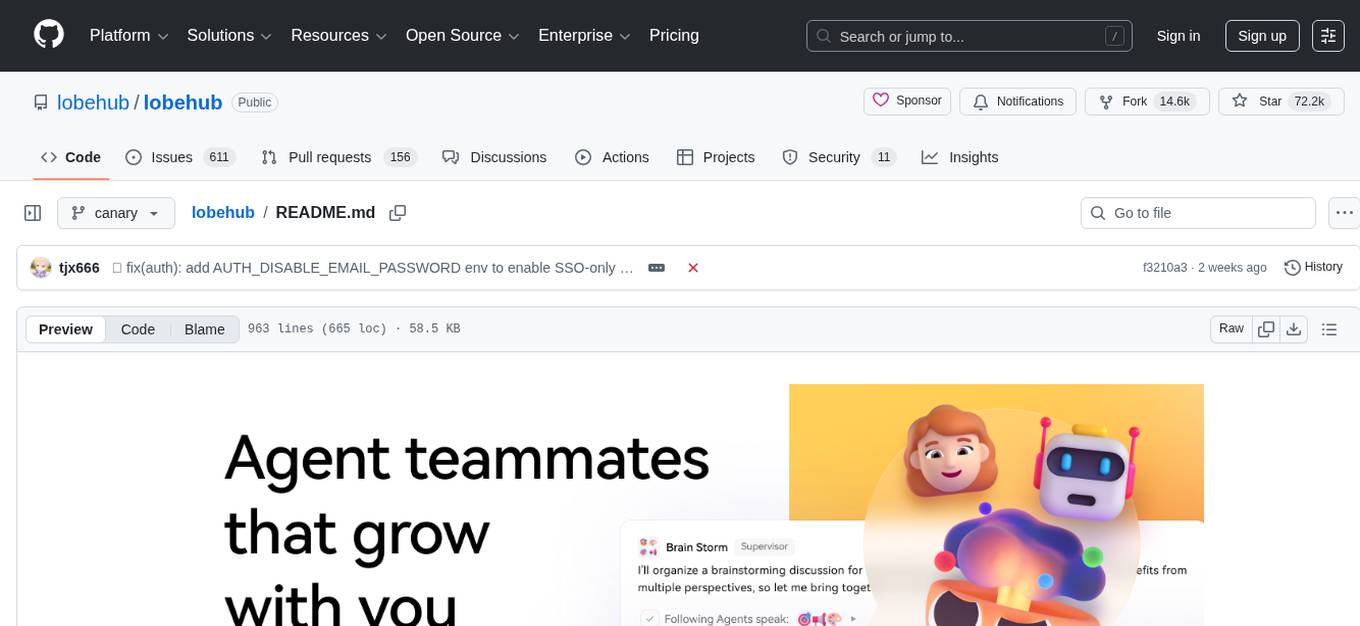
lobehub
LobeHub is the ultimate space for work and life, where users can find, build, and collaborate with agent teammates that grow with them. It aims to create the world's largest human-agent co-evolving network. LobeHub treats agents as the unit of work, providing an infrastructure for humans and agents to co-evolve. Users can create personalized AI teams, collaborate with agent groups, and experience the co-evolution of humans and agents. The platform supports various features like model visual recognition, TTS & STT voice conversation, text to image generation, plugin system for function calling, and an agent market for GPTs. LobeHub also offers self-hosting options with Vercel, Alibaba Cloud, and Docker Image, along with an ecosystem of UI components, icons, TTS libraries, and lint configurations.
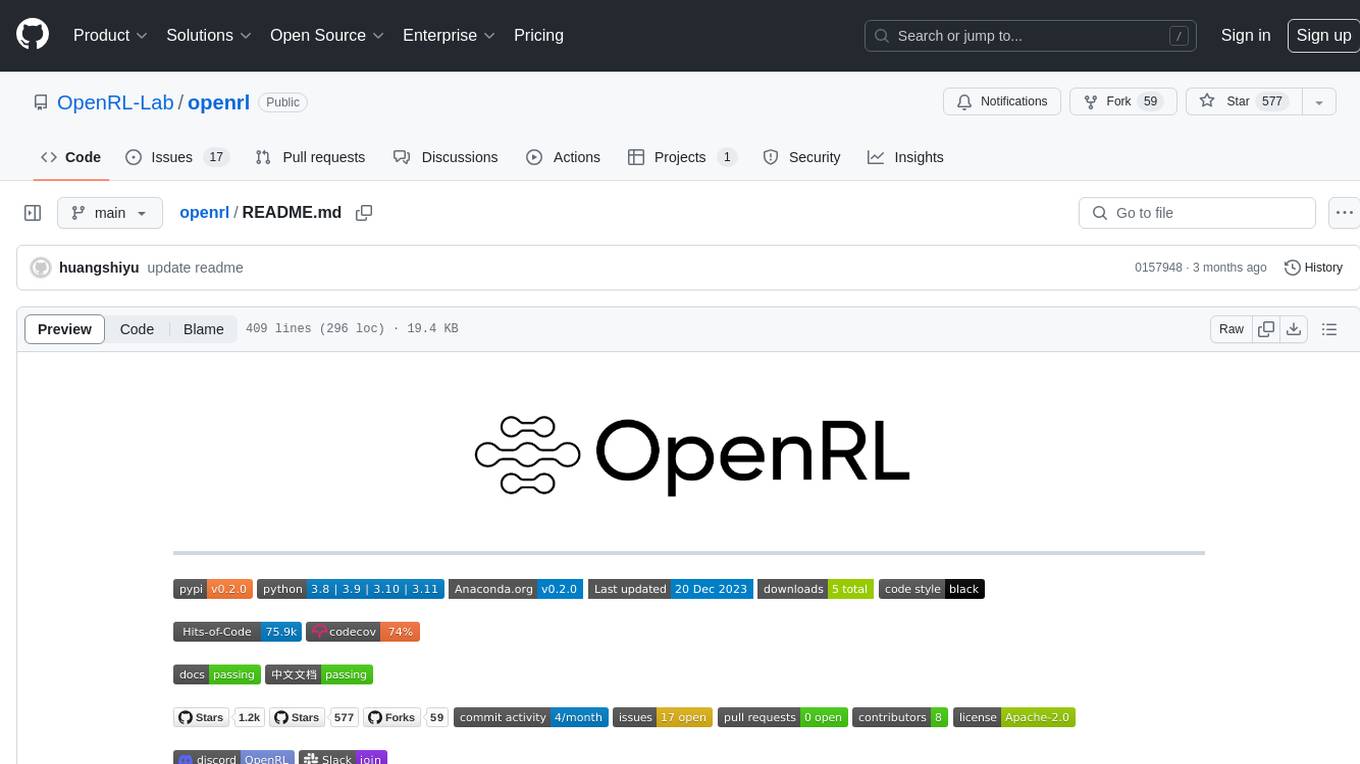
openrl
OpenRL is an open-source general reinforcement learning research framework that supports training for various tasks such as single-agent, multi-agent, offline RL, self-play, and natural language. Developed based on PyTorch, the goal of OpenRL is to provide a simple-to-use, flexible, efficient and sustainable platform for the reinforcement learning research community. It supports a universal interface for all tasks/environments, single-agent and multi-agent tasks, offline RL training with expert dataset, self-play training, reinforcement learning training for natural language tasks, DeepSpeed, Arena for evaluation, importing models and datasets from Hugging Face, user-defined environments, models, and datasets, gymnasium environments, callbacks, visualization tools, unit testing, and code coverage testing. It also supports various algorithms like PPO, DQN, SAC, and environments like Gymnasium, MuJoCo, Atari, and more.
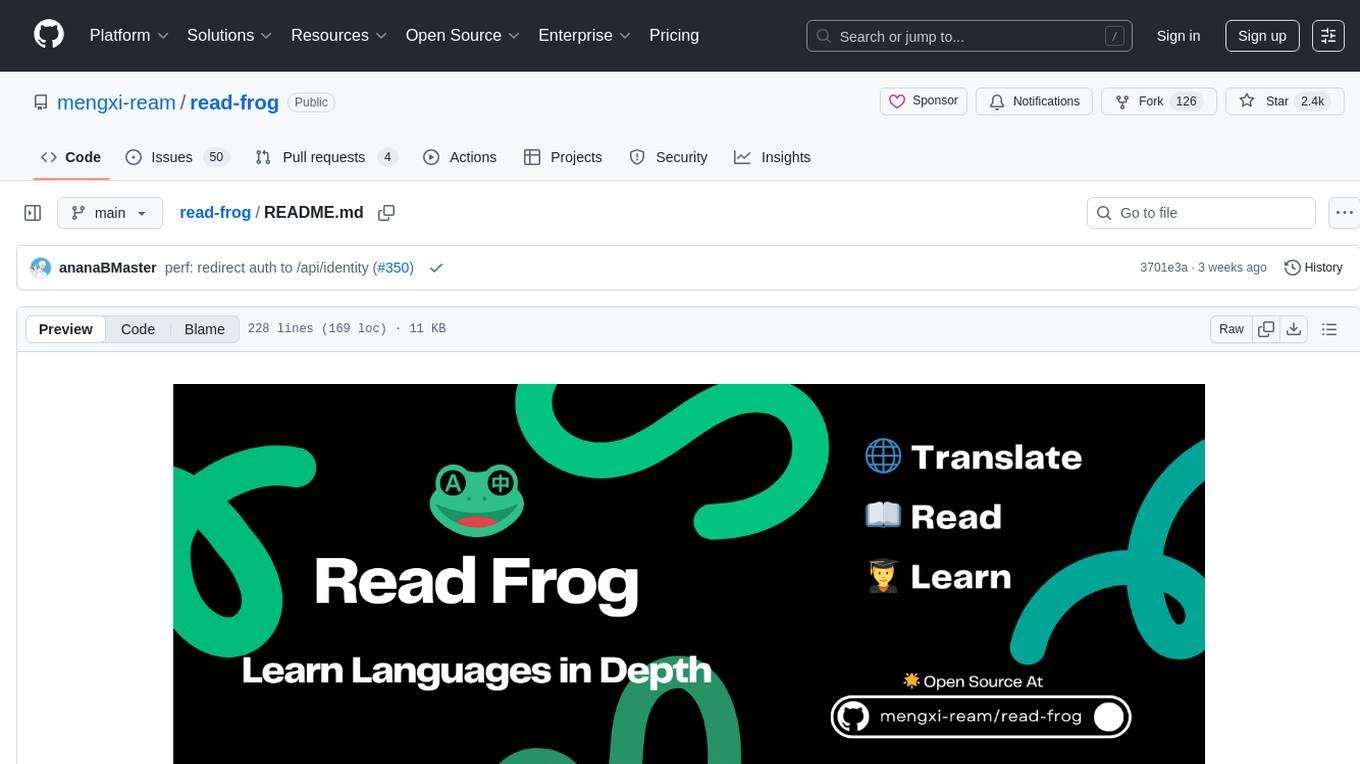
read-frog
Read-frog is a powerful text analysis tool designed to help users extract valuable insights from text data. It offers a wide range of features including sentiment analysis, keyword extraction, entity recognition, and text summarization. With its user-friendly interface and robust algorithms, Read-frog is suitable for both beginners and advanced users looking to analyze text data for various purposes such as market research, social media monitoring, and content optimization. Whether you are a data scientist, marketer, researcher, or student, Read-frog can streamline your text analysis workflow and provide actionable insights to drive decision-making and enhance productivity.
For similar tasks

awesome-weather-models
A catalogue and categorization of AI-based weather forecasting models. This page provides a catalogue and categorization of AI-based weather forecasting models to enable discovery and comparison of different available model options. The weather models are categorized based on metadata found in the JSON schema specification. The table includes information such as the name of the weather model, the organization that developed it, operational data availability, open-source status, and links for further details.

genai-os
Kuwa GenAI OS is an open, free, secure, and privacy-focused Generative-AI Operating System. It provides a multi-lingual turnkey solution for GenAI development and deployment on Linux and Windows. Users can enjoy features such as concurrent multi-chat, quoting, full prompt-list import/export/share, and flexible orchestration of prompts, RAGs, bots, models, and hardware/GPUs. The system supports various environments from virtual hosts to cloud, and it is open source, allowing developers to contribute and customize according to their needs.
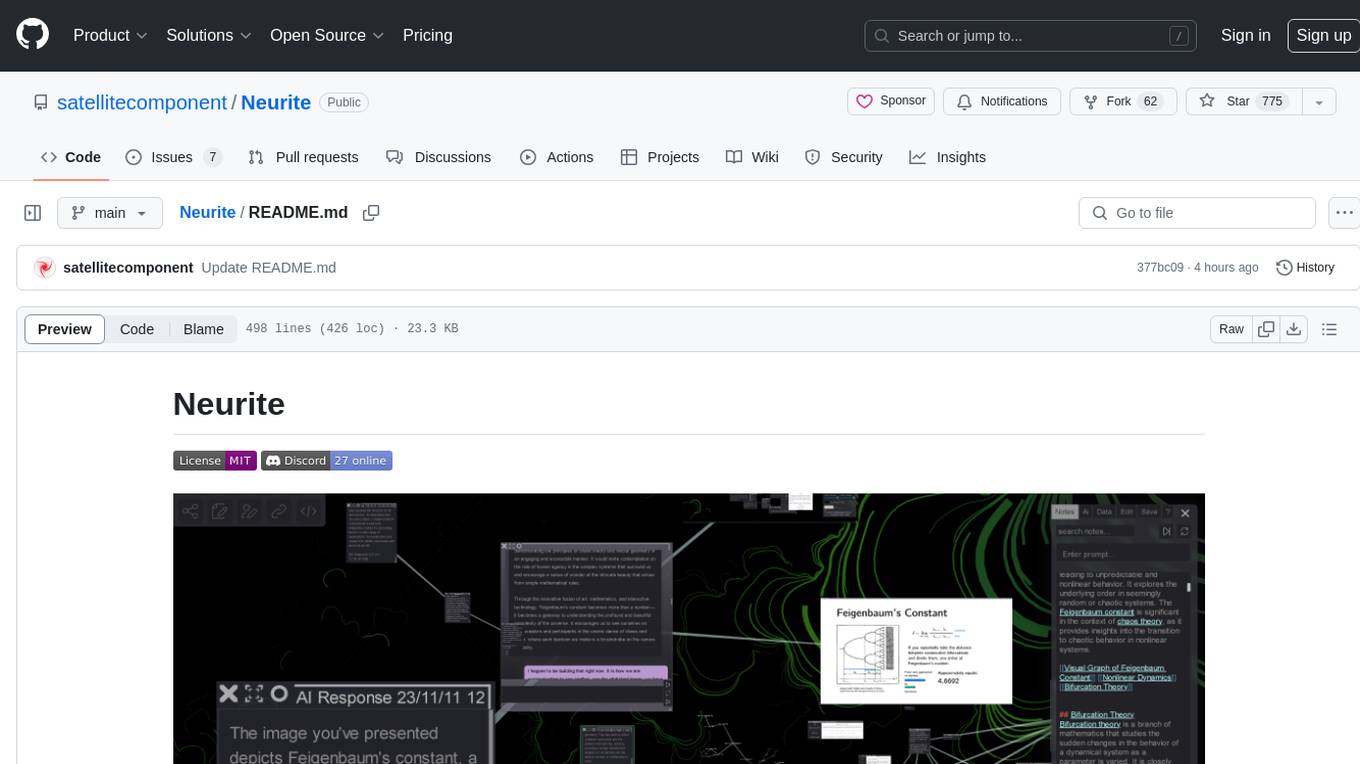
Neurite
Neurite is an innovative project that combines chaos theory and graph theory to create a digital interface that explores hidden patterns and connections for creative thinking. It offers a unique workspace blending fractals with mind mapping techniques, allowing users to navigate the Mandelbrot set in real-time. Nodes in Neurite represent various content types like text, images, videos, code, and AI agents, enabling users to create personalized microcosms of thoughts and inspirations. The tool supports synchronized knowledge management through bi-directional synchronization between mind-mapping and text-based hyperlinking. Neurite also features FractalGPT for modular conversation with AI, local AI capabilities for multi-agent chat networks, and a Neural API for executing code and sequencing animations. The project is actively developed with plans for deeper fractal zoom, advanced control over node placement, and experimental features.
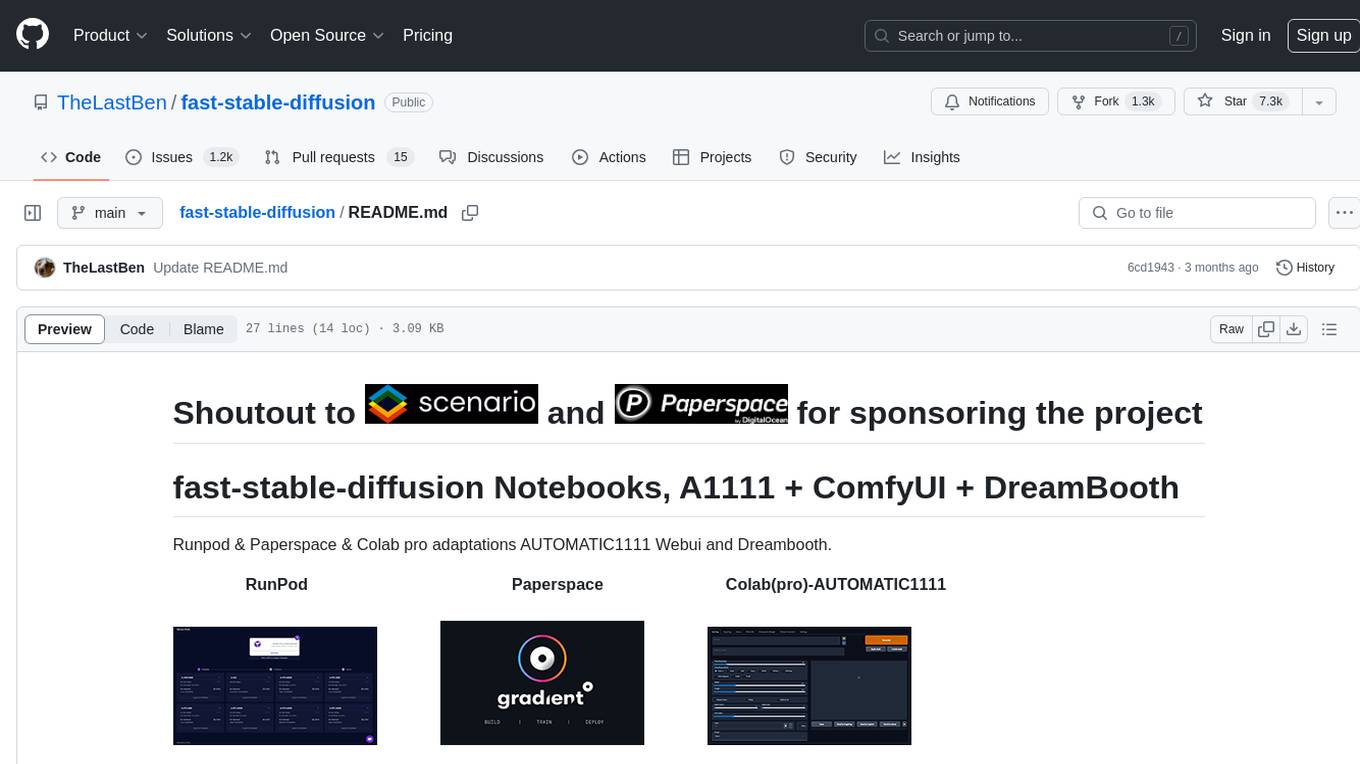
fast-stable-diffusion
Fast-stable-diffusion is a project that offers notebooks for RunPod, Paperspace, and Colab Pro adaptations with AUTOMATIC1111 Webui and Dreambooth. It provides tools for running and implementing Dreambooth, a stable diffusion project. The project includes implementations by XavierXiao and is sponsored by Runpod, Paperspace, and Colab Pro.
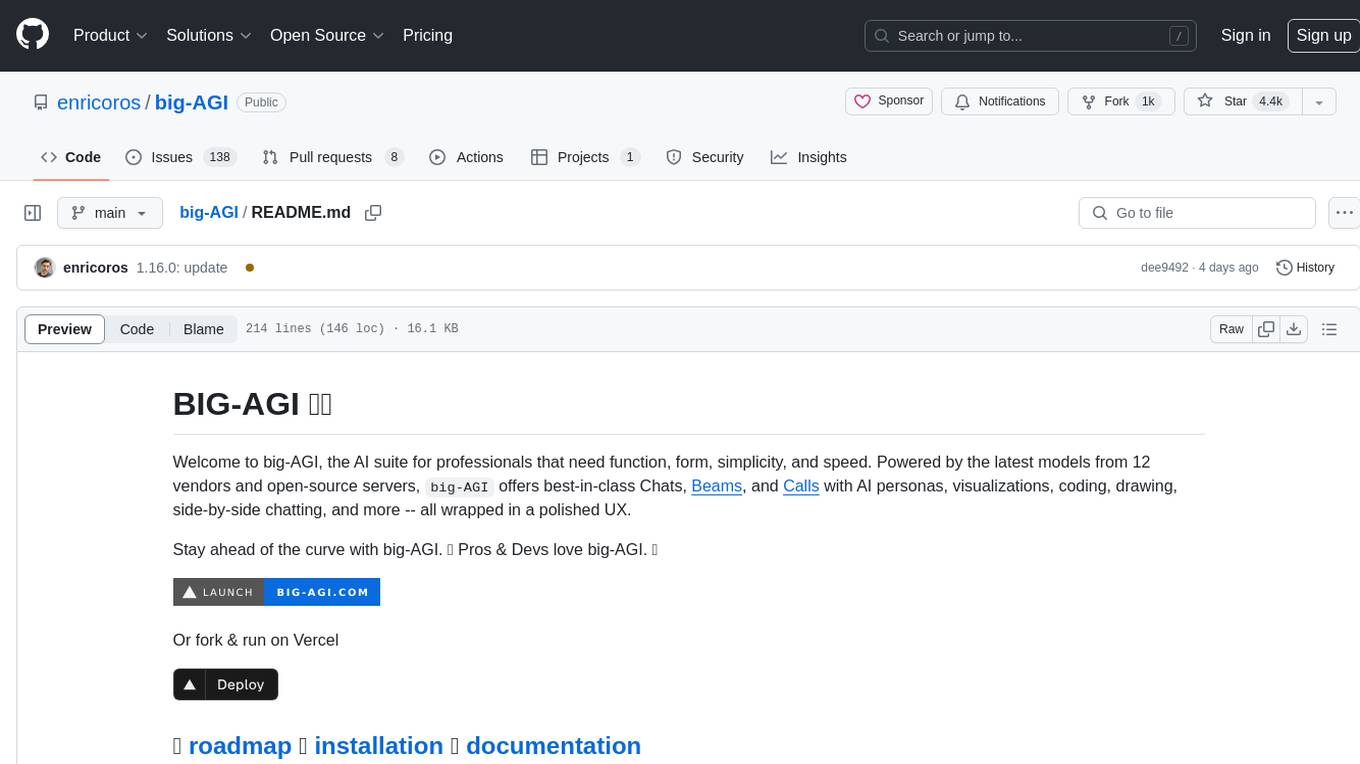
big-AGI
big-AGI is an AI suite designed for professionals seeking function, form, simplicity, and speed. It offers best-in-class Chats, Beams, and Calls with AI personas, visualizations, coding, drawing, side-by-side chatting, and more, all wrapped in a polished UX. The tool is powered by the latest models from 12 vendors and open-source servers, providing users with advanced AI capabilities and a seamless user experience. With continuous updates and enhancements, big-AGI aims to stay ahead of the curve in the AI landscape, catering to the needs of both developers and AI enthusiasts.
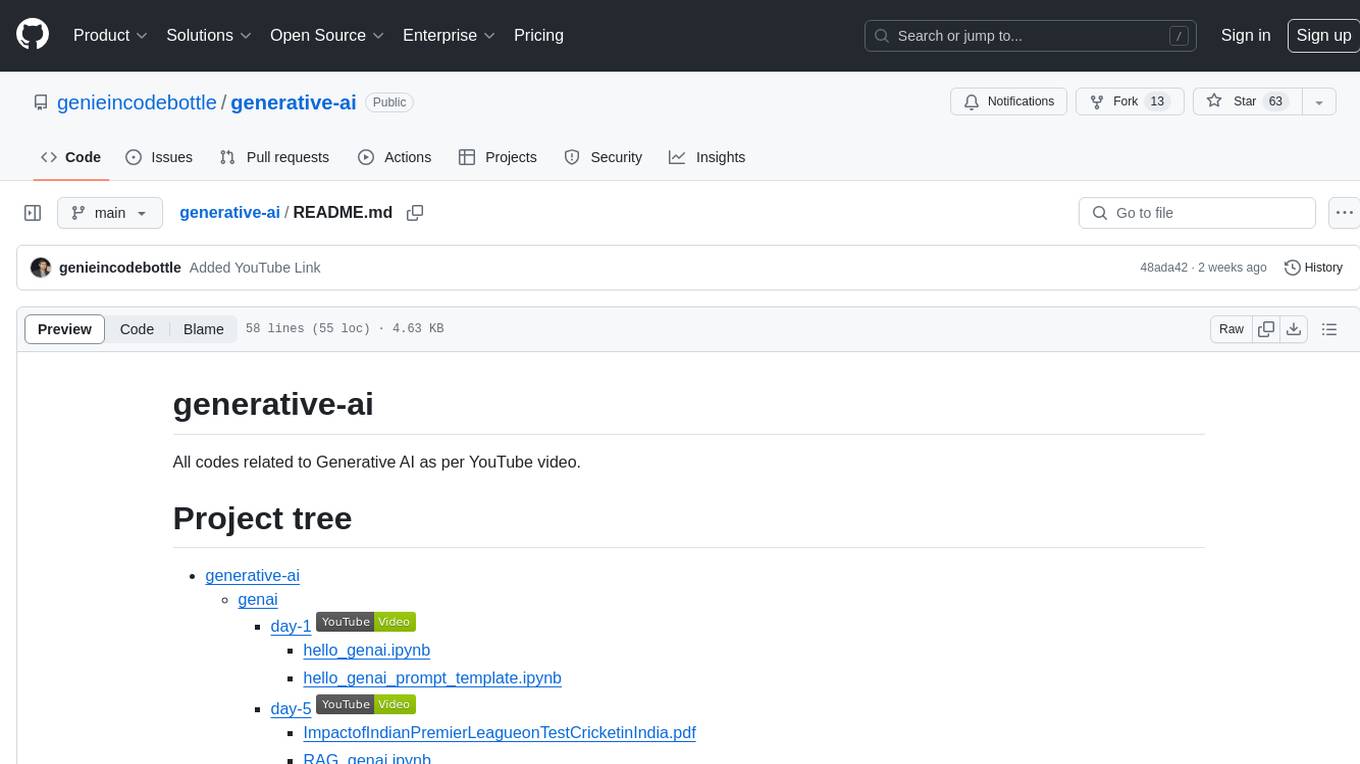
generative-ai
This repository contains codes related to Generative AI as per YouTube video. It includes various notebooks and files for different days covering topics like map reduce, text to SQL, LLM parameters, tagging, and Kaggle competition. The repository also includes resources like PDF files and databases for different projects related to Generative AI.
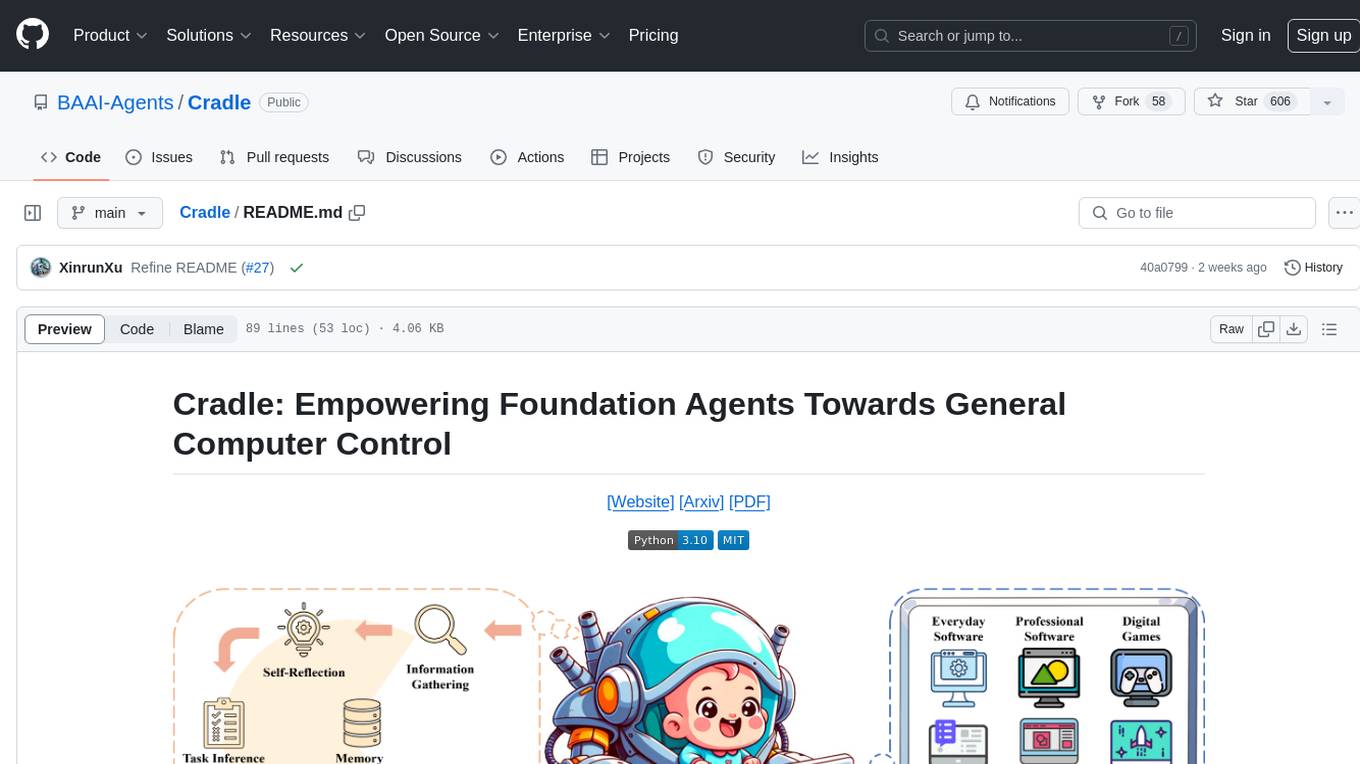
Cradle
The Cradle project is a framework designed for General Computer Control (GCC), empowering foundation agents to excel in various computer tasks through strong reasoning abilities, self-improvement, and skill curation. It provides a standardized environment with minimal requirements, constantly evolving to support more games and software. The repository includes released versions, publications, and relevant assets.
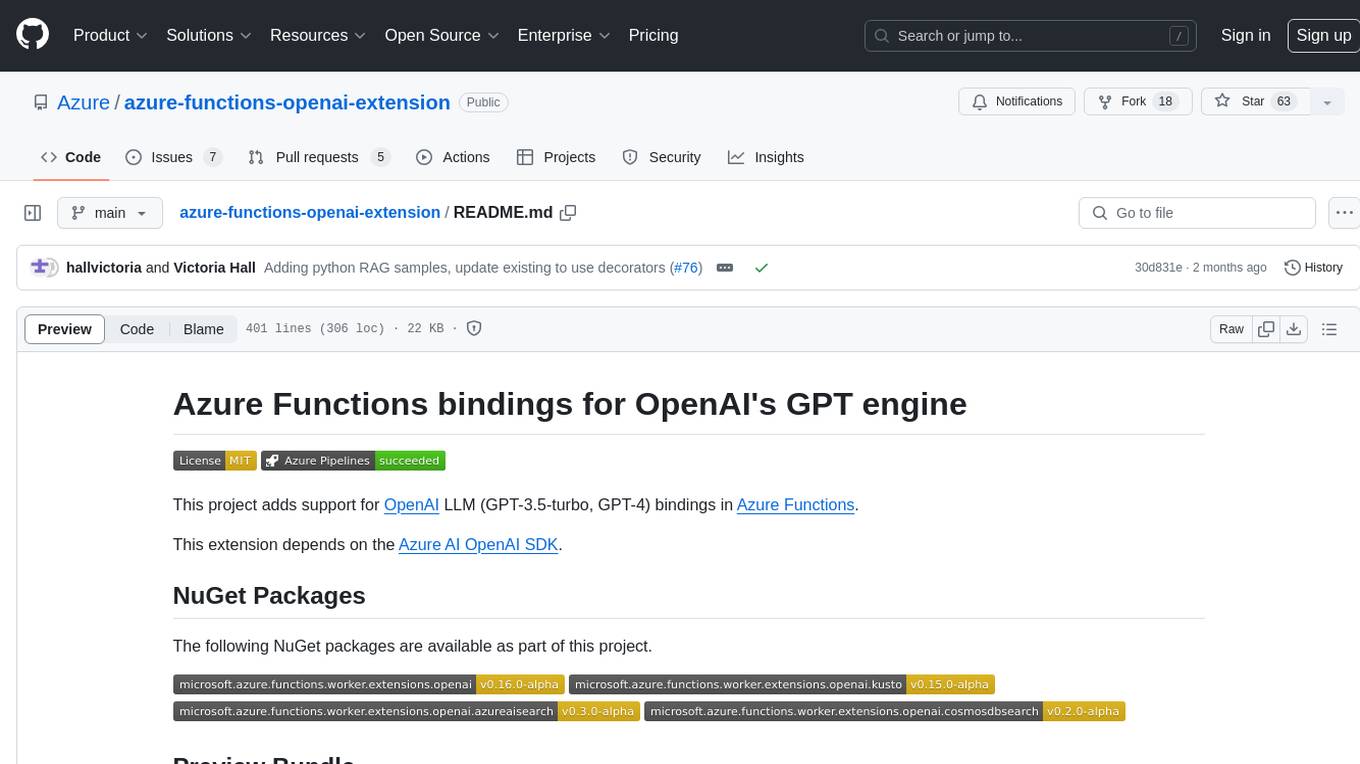
azure-functions-openai-extension
Azure Functions OpenAI Extension is a project that adds support for OpenAI LLM (GPT-3.5-turbo, GPT-4) bindings in Azure Functions. It provides NuGet packages for various functionalities like text completions, chat completions, assistants, embeddings generators, and semantic search. The project requires .NET 6 SDK or greater, Azure Functions Core Tools v4.x, and specific settings in Azure Function or local settings for development. It offers features like text completions, chat completion, assistants with custom skills, embeddings generators for text relatedness, and semantic search using vector databases. The project also includes examples in C# and Python for different functionalities.
For similar jobs

sweep
Sweep is an AI junior developer that turns bugs and feature requests into code changes. It automatically handles developer experience improvements like adding type hints and improving test coverage.

teams-ai
The Teams AI Library is a software development kit (SDK) that helps developers create bots that can interact with Teams and Microsoft 365 applications. It is built on top of the Bot Framework SDK and simplifies the process of developing bots that interact with Teams' artificial intelligence capabilities. The SDK is available for JavaScript/TypeScript, .NET, and Python.

ai-guide
This guide is dedicated to Large Language Models (LLMs) that you can run on your home computer. It assumes your PC is a lower-end, non-gaming setup.

classifai
Supercharge WordPress Content Workflows and Engagement with Artificial Intelligence. Tap into leading cloud-based services like OpenAI, Microsoft Azure AI, Google Gemini and IBM Watson to augment your WordPress-powered websites. Publish content faster while improving SEO performance and increasing audience engagement. ClassifAI integrates Artificial Intelligence and Machine Learning technologies to lighten your workload and eliminate tedious tasks, giving you more time to create original content that matters.

chatbot-ui
Chatbot UI is an open-source AI chat app that allows users to create and deploy their own AI chatbots. It is easy to use and can be customized to fit any need. Chatbot UI is perfect for businesses, developers, and anyone who wants to create a chatbot.

BricksLLM
BricksLLM is a cloud native AI gateway written in Go. Currently, it provides native support for OpenAI, Anthropic, Azure OpenAI and vLLM. BricksLLM aims to provide enterprise level infrastructure that can power any LLM production use cases. Here are some use cases for BricksLLM: * Set LLM usage limits for users on different pricing tiers * Track LLM usage on a per user and per organization basis * Block or redact requests containing PIIs * Improve LLM reliability with failovers, retries and caching * Distribute API keys with rate limits and cost limits for internal development/production use cases * Distribute API keys with rate limits and cost limits for students

uAgents
uAgents is a Python library developed by Fetch.ai that allows for the creation of autonomous AI agents. These agents can perform various tasks on a schedule or take action on various events. uAgents are easy to create and manage, and they are connected to a fast-growing network of other uAgents. They are also secure, with cryptographically secured messages and wallets.

griptape
Griptape is a modular Python framework for building AI-powered applications that securely connect to your enterprise data and APIs. It offers developers the ability to maintain control and flexibility at every step. Griptape's core components include Structures (Agents, Pipelines, and Workflows), Tasks, Tools, Memory (Conversation Memory, Task Memory, and Meta Memory), Drivers (Prompt and Embedding Drivers, Vector Store Drivers, Image Generation Drivers, Image Query Drivers, SQL Drivers, Web Scraper Drivers, and Conversation Memory Drivers), Engines (Query Engines, Extraction Engines, Summary Engines, Image Generation Engines, and Image Query Engines), and additional components (Rulesets, Loaders, Artifacts, Chunkers, and Tokenizers). Griptape enables developers to create AI-powered applications with ease and efficiency.
